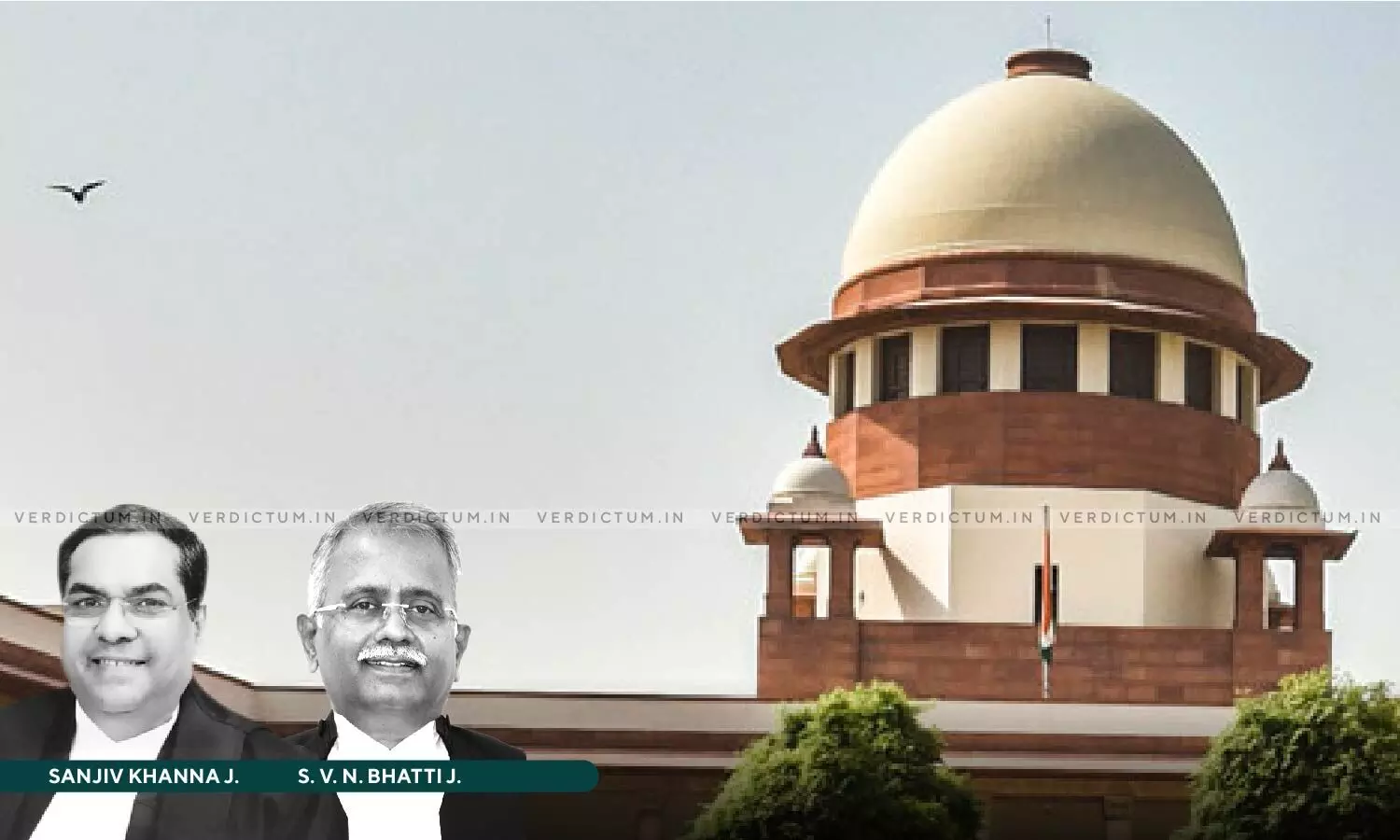
Police Does Not Have Power To Recover Money; Initiation Of Criminal Process For Oblique Purposes Amounts To Abuse Of Process Of Law: SC
 |
|The Supreme Court reiterated that the initiation of the criminal process for oblique purposes, is bad in law and amounts to abuse of process of law.
The court said that police does not have the power and authority to recover money or act as a civil court for recovery of money.
The court noted that despite its repeated judgments, the clear distinction between a civil wrong in the form of breach of contract, non-payment of money or disregard to and violation of the contractual terms; and a criminal offence under Sections 420 and 406 of the IPC, are somehow overlooked, and are not being applied and enforced.
In the matter while holding that a contractual dispute or breach of contract per se should not lead to initiation of a criminal proceeding, the bench further observed, “It is one thing to say that a case has been made out for trial and criminal proceedings should not be quashed, but another thing to say that a person must undergo a criminal trial despite the fact that no offence has been made out in the complaint”.
The impugned judgment dismissed the application filed by the appellants under Section 482 CrPC on the ground of delay/laches and also the since the chargesheet was filed in 2019. However, the bench was of the opinion that the same ground and reason was not valid.
Accordingly, a bench of Justice Sanjiv Khanna and Justice Dipankar Datta while setting aside an impugned order observed, “For the offence of cheating, dishonest intention must exist at the inception of the transaction, whereas, in case of criminal breach of trust there must exist a relationship between the parties whereby one party entrusts another with the property as per law, albeit dishonest intention comes later. In this case entrustment is missing, in fact it is not even alleged. It is a case of sale of goods. The chargesheet does refer to Section 506 of the IPC relying upon the averments in the complaint. However, no details and particulars are given, when and on which date and place the threats were given. Without the said details and particulars, it is apparent to us, that these allegations of threats etc. have been made only with an intent to activate police machinery for recovery of money”.
Accordingly, the appeal was allowed while quashing the FIR and resultant proceedings, including the chargesheet.
Senior Advocate Rajul Bhargava appeared for the petitioner and AOR Rajat Singh appeared for the respondents.
An FIR was registered for the offences punishable under Sections 406 and 506 of the Indian Penal Code in the present matter. After the investigation, the police filed the charge sheet under Section 173 of the Code of Criminal Procedure, 1973.
As per the FIR and the assertions made it was quite clear that respondent no. 2/complainant –grievance was regarding failure of the appellants to pay the outstanding amount, in spite of the repeated demands.
The bench was of the opinion that even the assertions made in the complaint are assumed to be true, but even then, a criminal offence under Section 420 read with Section 415 of the IPC was not established in the absence of deception by making false and misleading representation, dishonest concealment or any other act or omission, or inducement of the complainant to deliver any property at the time of the contract(s) being entered.
However, the ingredients to allege the offence are neither stated nor can be inferred from the averments but a prayer was made to the police for recovery of money from the appellants. “The police is to investigate the allegations which discloses a criminal act. Police does not have the power and authority to recover money or act as a civil court for recovery of money”, the bench thus held.
“…the High Court should not hesitate to exercise its jurisdiction under Section 482 of the CrPC. Section 482 of the CrPC saves the inherent power of the High Court, as it serves a salutary purpose viz. a person should not undergo harassment of litigation for a number of years, when no criminal offence is made out. It is one thing to say that a case has been made out for trial and criminal proceedings should not be quashed, but another thing to say that a person must undergo a criminal trial despite the fact that no offence has been made out in the complaint”, the bench further observed.
Appearances:
Petitioner: Senior Advocate Rajul Bhargava, Advocates Atul Kumar, Abhimanyu Sharma, Deepali, Pulak Bagchi, Chander Kiran, AOR Tarun Gupta
Respondent: AOR Rajat Singh, Advocates Abhishek Singh, Sarthak Chandra, Arun Pratap Singh Rajawat, AOR Gautam Das, Advocates Sanjeev Kumar Punia, Dhirendra Kumar Jha, Rajinder Singh Chauhan
Cause Title: Lalit Chaturvedi & Others v. State Of Uttar Pradesh & Another
Click here to read/download the Order